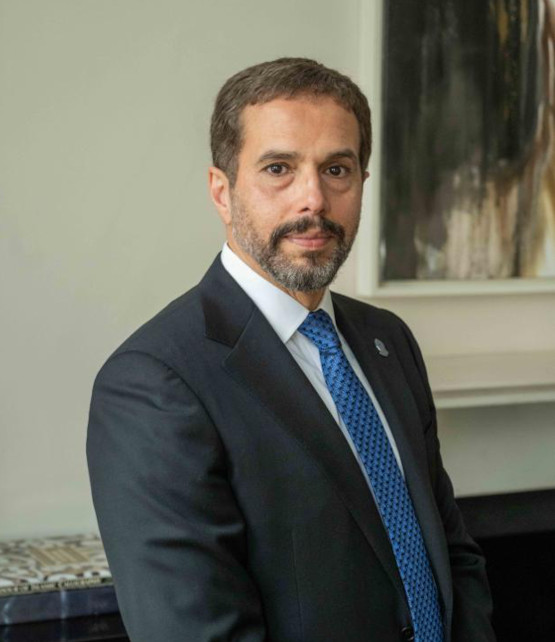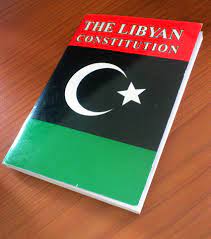London, 27 February: A new roadmap for Libya has been unveiled by the Cambridge-based Middle East and North Africa Forum (MENAF). Entitled “Plan B for a Democratic Libya?”, it proposes the restoration of 1951 constitution and a constitutional monarchy as the only route to a stable and united Libya. It believes this would be acceptable to the majority of Libyan and, unlike other roadmaps, would work.
The plan was unveiled at an in-person event in London at the British parliament’s House of Lords on 23 February and the next day in a Zoom conference which was joined by some 200 people, including Libya-based political and civil society activists. The in-person event drew diplomats, academics, Libyan professionals based in the UK as well as some members of the British parliament.
The political situation in Libya and visa issues apparently prevented a single in-person gathering taking place there or anywhere else.
MENAF says that what it calls “Plan A”, the roadmap organised by the UN Support Mission in Libya (UNSMIL) through the Libyan Political Dialogue Forum (LPDF), has failed and that there is little chance that any other current efforts to resolve the Libyan crisis will succeed. It says that it is hard to see free and fair elections being held in the current circumstance or their results accepted. It believes that the political stalemate is likely to continue, along with the current “soft” partition of the country along geographic lines.
Moreover, it claims that interviews with Libyans indicate that the vast majority no longer have any confidence in ability of the LPDF or the UN to fix Libya’s problems. A majority, too, disclosed that that they did not trust most of current political figures or any existing Libyan institutions. The most trusted was the judiciary but even it got less than a 16-percent approval rating.
There is a lack of legitimacy, the report adds, and, with power in the hands of a small self-serving political elite and of militias on the ground, the prospect of security sector reform and national unity are remote. Libyans, MENAF reports, see country fractured by power struggles, corruption and a lack of a willingness to accept coexistence and equality.
Given the situation, the realistic options for Libya are clear, the report says: continued stalemate, a new military dictatorship or return a constitutional monarchy.
Stalemate is highly likely if the current political process carries on. The divisions within the country and the dynamics they have created means that it is impossible for one individual or allied group of individuals to take full control of Libya. As for a new military dictatorship, not only is it unacceptable internationally, research indicated that less than seven percent of Libyans accept it.
On the other hand, the report claims that 50 percent of Libyans interviewed were “open” to the idea of restoring the 1951 Constitution and a “symbolic” monarchy. Most of them, it adds, view Mohammed El Senussi, great nephew of King Idris and son of former Crown Prince Hassan and claimant to the former throne, in a positive light.

The type of constitutional monarchy proposed is not that of others in the Arab world, MENAF says, but is similar to those in Europe, where the monarch has no political power and instead symbolises the country’s unity. Such a system, MENAF further says, would provide legitimacy, a framework for the separation of powers and could give Libya “a clear starting point from which to rebuild Libyan state institutions and to develop its own constitutional law”. It could also give Libya a peaceful route to evolve future political systems.
At the in-person meeting, it was also pointed out that an elected president as endorsed by the international community, could not work, given the current dynamics. An elected president would, inevitably, come from a particular town or tribe and also might represent a particular ideology or faction. He would therefore be cause for division and conflict. He would inevitably be opposed by other communities. Even if he gained a majority of votes in polling, he would still be rejected by a significant minority who might be willing to take up arms against him.
It has been opposition to certain individuals that scuppered the last attempt at presidential elections, it was noted. That reality was not going to disappear in the near future, it was said. The Senussis, it was claimed, were the one exception. They were not from any particular community. It was pointed out that they were also not part of any of Libya’s problems for the past 52 years.
MENAF claims that returning Libya to the constitution set-up that existed before Muammar Qaddafi’s coup in 1969 can solve many of the problems that have destabilised and damaged the country since 2011. It suggests that the pre-1969 constitution can be restored through a new national dialogue mentored by the UN, and then a referendum on the issue.








